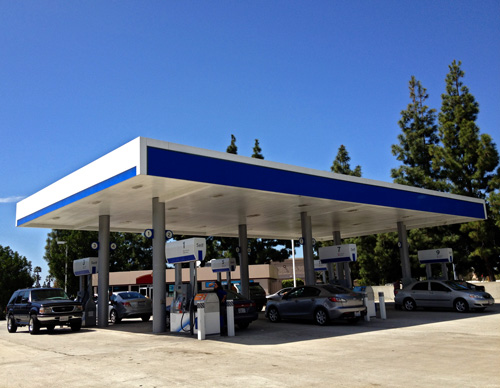Do Fuel Prices Really Affect Vehicle Purchase Intentions?
- April 5, 2012
- Car Buying, Featured, Survey Results, Uncategorized
- Posted by Ty Michael
- Comments Off on Do Fuel Prices Really Affect Vehicle Purchase Intentions?
Drivers today are shelling out nearly $4/gallon, on average, to fill up their vehicles, about 25 cents more than this time last year. But this added expense is not persuading consumers to ditch their SUVs for more fuel efficient small cars. Results from AutoPacific’s latest Fuel Price Impact Survey (FPIS) actually show SUVs being the top vehicle replacement choice, with small cars coming in third. In addition, 76% surveyed would replace their current vehicle with a similarly sized one, whereas only 18% say they would go smaller.
Only Minor Vehicle Segment Shifts: In general, US drivers would not shift to a different vehicle segment when time to replace their current vehicle. Differences from replacement vehicle segment choice and what respondents currently own range between 0-2 percentage points, according to survey results. For example, 28% of respondents own an SUV, and that same percent would choose one for their replacement as well. About 19% would choose a small car, which is two percentage-points higher than current respondent ownership. This is a stark contrast to the July 2008 fuel price spike when the top replacement choice was small cars at 32% of the sample, 12 percentage points higher than current ownership at that time.
$10/gallon to Change Buying Behavior? Escalating fuel prices could cause drivers to change the types of vehicles they plan to buy next, but not at today’s prices. About 33% that say higher fuel prices would cause them to change the type of replacement vehicle purchased. And on average, fuel would have to cost about $4.80/gallon for these respondents to choose a different vehicle, or $0.93 more compared to what they said they were paying. However, 47% of survey takers note that fuel price increases would not cause them to change vehicle type, and 42% of those respondents say that even $10/gallon gas would not persuade them to change vehicle type.
Fuel Prices Causing Discretionary Spending Cuts: In general, about 1 in 3, on average, curtail discretionary purchases when fuel prices increase—about 34% cut out movie/music purchases, 34% fast food, and 32% going out. On the flip side, 42% say fuel price increases have little to no affect on their discretionary purchases. Though a long-term purchase, vehicle-buying intentions show a similar trend. When asked whether current economic conditions, including fuel costs, have made them more or less likely to buy or lease a vehicle in the next year, 32% say less likely but 59% say economic conditions have no effect.
Government NOT Doing An Acceptable Job Managing Energy Costs: During this election year, voters are paying close attention to how all sides of the political arena say they will manage energy costs. Right now, 66% of survey respondents say the current administration is not doing an acceptable job, while 86% say the same thing about congress. And the political party best equipped to implement a successful energy policy in US? 28% indicate Republican, 17% Democrat, but 34% simply say none of the political parties.
Drivers Change Driving Behavior: Drivers change their driving habits in some way due to fuel prices–47% combine driving trips, for example. In fact, about 8 in 10 say they change their driving behavior in some way when fuel prices increase: some drive slower now (37%), while others merely drive less (43%).
“I will not change the type of vehicle I drive (2-seat sports car) but I have changed my driving habits. I combine shopping trips, I no longer drive cross-country on long extended vacations, and I more carefully plan weekend holiday trips,” notes one survey respondent.
About Fuel Price Impact Study
The March 2012 Fuel Price Impact Survey is based on a sample size of 1,242 U.S. drivers and was fielded from March 20-30, 2012. Since 2005, AutoPacific has conducted the Internet-based fuel price impact survey every two months, drawing respondents from its VehicleVoice Internet Automotive Survey Panel. The objective is to determine the impact of volatile and rising fuel prices on American drivers and to determine what impact fuel prices would have on product segment and powertrain choices. The study also examines the impact of fuel prices on driving behavior, attitudes about various issues surrounding driving in America, and automotive aftermarket purchase intentions. The full results of the study are available via subscription.


